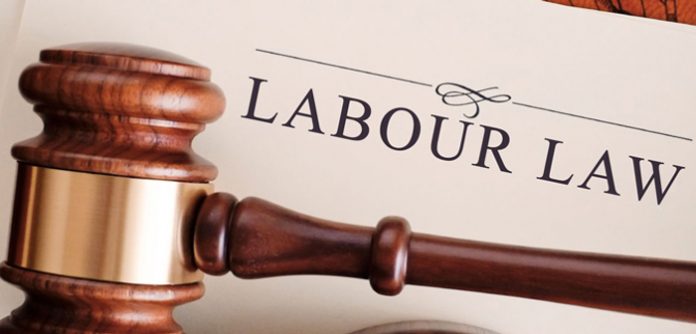This article is written by Nirmalya Bhattacharya, pursuing a Certificate Course in Labour, Employment and Industrial Laws for HR Managers from LawSikho.com. Here he discusses “Who can initiate a proceeding for a labour law violation and how?”

The laws related to labour and employment in India come under the broader category of “Industrial Law”. Industrial Law in India id more or less vintage in nature though it is adopting a modern approach in recent years keeping in mind the flourish in IT industries and Service Sectors. However, the consequences of any violation of the provisions are becoming more and more stringent.
For the purpose of this article, I am taking into consideration the following acts and amendments thereto and shall try to find out the initiator of a proceeding for a violation under these statutes.
- Minimum Wages Act, 1948
- Payment of Wages Act, 1936
- The Contract Labour (Regulation and Abolition) Act, 1970
- The Factories Act, 1948
- Employees’ Provident Funds and Miscellaneous Provisions Act, 1952
- Payment of Bonus Act, 1965
- Payment of Gratuity Act, 1972
- Equal Remuneration Act, 1976
- Maternity Benefit Act 1961
- Industrial Employment (Standing Orders) Act 1946
Minimum Wages Act, 1948
Under the provisions of the act violation(s) may take place by the employer. In such cases, under section 20(2) of the act, the employee himself or herself or any appointed legal practitioner or any official of a registered trade union who has been duly authorised by the employee in writing to act in his behalf can make an application to the appropriate authority as appointed by the Appropriate Government under Section 20(1). Any inspector or any other person with the permission granted by the authority under Section 20(1) can also make such application for initiation of proceedings.
However, such application is to be made within 6 months from the date on which the minimum wage or other amounts become applicable. In such cases, where there is a delay of more than 6 months, the Authority can admit the application if and only if he is satisfied with the cause of the delay.
Upon receiving such application the Authority shall give the employer and the applicant opportunity of being heard and after such necessary enquiry shall give his directions as per section 20(3) of the act.
Payment of Wages Act, 1936
Alike minimum Wages Act, a violation under the Payment of Wages Act 1936 can be made by the employer and/ or the person responsible for payment of wages. As per section 15(2) of the act, in cases of any contravention to the provisions related to the payment of wages or any unlawful deduction from wages, the affected employed person himself or any legal practitioner or any official of any registered trade union who has been authorised in writing to apply on the behalf of the employed person or any inspector under this act or any other person permitted by the appointed authority under section 15(1) `can make an application to the Authority as appointed by the Appropriate Government under section 15 sub-section1.
Such application is to be made within 12 months from the date on which the unlawful deduction has been made and/or from the date on which the payment of wages was due. In such cases, where there is a delay of more than 12 months, the Authority can admit the application if and only if he is satisfied with the cause of the delay. [Section 15(2)]
Upon receiving such application the Authority shall give the employer and the applicant opportunity of being heard and after such necessary enquiry shall give his directions as per section 15(3) of the act.
The Contract Labour (Regulation and Abolition) Act, 1970
As per section 15 (1) of the any person who is aggrieved by an order for the reasons like Registration of Establishment (Section 7) or revocation of registration in some specific cases (Section 8) or licensing of the contractor (Section 12) or revocation, suspension and amendment of licenses (section 14) can make an appeal to the appellate officer within 30 days from the date of communication of the above-referred order.
However, the appellate officer can accept the appeal even after 30 days provided he is satisfied with the cause of the delay.
After receiving the order the appellate officer shall dispose of the application at the earliest possible after giving the appellant a scope of being heard. (Section 15(2))
In this context, it is to be mentioned that as per section 26 no court shall take a notice of any offence under this Act unless the same is made by the inspector or with his sanction in writing.
Factories Act, 1948
For any proceedings under Factories Act 1948, the Manager of a factory to whom an order has been issued in writing by an Inspector under any provision of the act, or the occupier of the factory, within 30 days of receiving such order can make an appeal to the prescribed authority against such order.
Employees’ Provident Funds and Miscellaneous Provisions Act 1952
As per section 7-I of the act, any person aggrieved by a notification issued by the Central Government or any other authority can make an appeal to the Tribunal against such notification. Such notifications can be regarding
- Applicability of the provisions of the act as per section 1(3) and section 1(4) of the act
- Power to apply the act to an establishment which has a common provident fund with some other establishment [As per section 3 of the act]
- Determination of amount due from an employer as per section 7-A(1) of the act or any review related to that [Section 7-B]
- Determination of escaped amount as per section 7-C
- Recovery of damages in case of failure by the employer in the payment of contribution as per section 14B.
As per Section 7-K(1) of the act, the appellant can present the case on his own or can avail the assistance of a legal practitioner of his choice to represent his case before the tribunal.
Payment of Bonus Act, 1965
Under Section 21 of the aforesaid act, whenever an employee is entitled to get any money as bonus, whether, under a settlement or an award or an agreement, the employee himself or any other person duly authorised by the employee in writing can make an application to the appropriate government or to any other authority whom the appropriate government has appointed for this purpose. This application is subject to the satisfaction of the authority that the amount is actually due. In case of death of the employee, his assignee or heirs are also entitled to make the application.
Such an application is to be made within one year from the date on which the money becomes due to the employee from the employer. In such cases, where there is a delay of more than one year, the Authority can accept the application if and only if he is satisfied with the cause of the delay.
Payment of Gratuity Act, 1972
Under Section 8 of the above-referred act, when gratuity is not paid to an employee by the employer, within the stipulated time, the aggrieved person himself can make an application to the controlling authority. After receiving such application issue a certificate for that amount to the Collector, who shall recover the same, along with compound interest over and above at such rate as the Central Government may, by notification, specify from the date of expiry of the prescribed time, as arrears of land revenue and pay the same to the employee.
However, in such cases, the employer shall be given an opportunity to get heard and the amount of interest shall never exceed the amount of payable gratuity.
Equal Remuneration Act, 1976
As per the provision of Section 7(1)(a) of the act and Rule, 3(1) of the Equal Remuneration Rules 1976, the aggrieved employee can make the complaint to the Assistant Labour Commissioner or Deputy Labour Commissioner, who had been appointed as the Authority by the Appropriate Government. Here we need to remember that as per the provision of Section 7(1) the said authority must not be below the rank of Labour Officer.
Further, as per the provision Rule 3(3) of the Equal Remuneration Rules 1976, the aggrieved employee can lodge the complaint on her own or by any legal practitioner, or by any official of a registered trade union duly authorised in writing to appear and act on her behalf. This is also to be mentioned here that even the Inspector, as appointed as per Section 9 of the Act or any other person duly appointed by the Authority with proper permission, are also entitled to lodge a complaint on the grounds of Section 7(1)(a) and 7(1)(b) of the Act.
Maternity Benefit Act, 1961
As per section 12(2)(b) of the act, any woman who is deprived of any maternity benefit or medical bonus or both can make an appeal to the appropriate authority within sixty days from the date when such deprivation has been communicated to her.
In case of such appeals, the decision from the authority regarding the rightness of the deprivation shall be treated as final.
In addition to the above, as per section 17(1), any woman who claims that her entitlements for maternity benefit or any other amount under this act have been improperly withheld may make a complaint to the inspector, appointed as per section 14 of the act. The same process is applicable in case of the death of a woman who was entitled to maternity benefit(s). In such a case, any person can make a complaint to the inspector.
Industrial Employment (Standing Orders) Act, 1946
As per section 6(1) of the act, any aggrieved employer, workmen, trade union or other prescribed representative of the workmen can make an appeal to the appellate authority against the certified standing order based on section 5(2) of the act. This appeal has to be made within 30 days from the date on which the copies of the certified standing order have been sent abiding by section 5(3) of the act. The Appellate Authority, after receiving such application shall order the final certification as per the earlier copy issues by the Certifying Officer or after making such modifications as he thinks to deem fit. The Appellate Authority’s decision shall be treated as final.
Students of Lawsikho courses regularly produce writing assignments and work on practical exercises as a part of their coursework and develop themselves in real-life practical skill.
https://t.me/joinchat/J_0YrBa4IBSHdpuTfQO_sA
Follow us on Instagram and subscribe to our YouTube channel for more amazing legal content.
 Serato DJ Crack 2025Serato DJ PRO Crack
Serato DJ Crack 2025Serato DJ PRO Crack











 Allow notifications
Allow notifications


